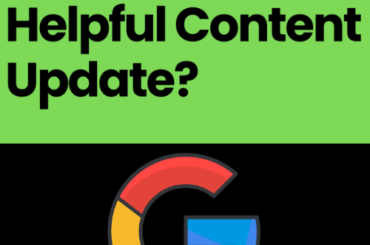In the era of AI tools, blogging is much easier than ever before. Earlier we used to pay so much attention to the SEO and originality score while writing an article. Now, it will be done in a blink of an eye. Today, I will provide you with the chatGPT prompt that will perform the article spin and generate a 100% plagiarism-free and SEO-optimized article.
What is an SEO-optimised article?
When it comes to discussing seo-optimization, then words won’t be enough. Let’s discuss the basic requirements that will make article writing an easy task for beginners.
Article Length
The article length must be above 500 words, period. The more the article word count, the more the initial signal we send to the Google bots to come and spend extra time on our article and pass the message to AI algorithms that work for Google Discover. This will make sure more exposure and indirectly more earnings in the future.
Keywords
There is always a Focus Keyword in the article. We have to make sure that the keyword is in the title, first paragraph, subheadings, slug, meta title, meta description and slug of the article. The keyword must be evenly distributed in the article. Please note that there must not be too much keyword stuffing as it will generate a bad signal to the crawlers.
Sentence Length
Well, many can argue on this point. But in my personal experience, one must keep the sentence length less than 20 words. This not only helps in correct comprehension and grammar but also in improved reading experience.
Active voice
One should avoid using too much passive voice in the article. Using too much passive voice in blogs can lead to several drawbacks and negatively impact the readability and effectiveness of your content. A few drawbacks of using passive voice are –
- Unclear and Confusing: Passive voice can make sentences more ambiguous and unclear. It often hides the subject of the sentence, making it difficult for readers to understand who is performing the action.
- Reduced Readability: Passive voice tends to be wordy and less straightforward, which can reduce the overall readability of your blog posts. Readers may find it harder to follow the message, leading to a higher bounce rate.
- Lack of Engagement: Active voice creates more engaging and dynamic sentences, while passive voice can sound passive and disengaged. Using active voice can make your content more interesting and encourage readers to stay engaged.
- Weak Writing: Passive voice can make your writing sound weaker and less assertive. Active voice, on the other hand, adds strength and impact to your sentences, making your content more persuasive.
- Loss of Authoritative Tone: Blogs are often used to share knowledge and expertise. Excessive passive voice can make your writing sound less authoritative and may reduce the trust readers have in your content.
- Reduced SEO Performance: Search engines prefer content written in an active voice as it is more direct and engaging. Overusing passive voice may affect your SEO rankings and visibility.
- Lack of Clarity in Attribution: In some cases, passive voice can obscure responsibility or accountability for actions, which might not be appropriate, especially when discussing important topics.
- Monotonous Tone: Overusing passive voice can create a monotonous tone throughout your blog posts, making them less interesting and engaging to read.
- Longer Sentences: Passive voice often requires more words, leading to longer sentences. Long sentences can be overwhelming for readers and may cause them to lose interest.
- Impact on Conversions: If your blog aims to convert readers into customers or subscribers, passive voice may not be as effective in persuading them to take action.
Words complexity
The complexity of words used in your content can have both positive and negative impacts on SEO. It is essential to strike a balance and consider your target audience when choosing the complexity of your language. The negative impacts of using too much complex words are –
- Readability and User Experience: Using overly complex language can make your content difficult to read and comprehend, leading to a higher bounce rate as users may leave your page without engaging with it fully.
- Accessibility Concerns: Complex words can present challenges for users with lower literacy levels or those whose first language is not the one you are using. This can limit the accessibility of your content.
- Keyword Stuffing Avoidance: Search engines are becoming smarter at understanding natural language and semantic context. Overusing complex words solely for the sake of keywords can be seen as keyword stuffing and negatively impact SEO.
- Wider Audience Reach: By using simpler language, you can reach a broader audience and ensure that your content is understandable and relatable to a more extensive range of readers.
- Dwell Time and Engagement: If users struggle to understand your content due to complexity, they are less likely to spend time on your site or engage with your content, which can negatively affect SEO factors like dwell time and bounce rate.
Spin article using chatGPT
Today, it is all about using the correct prompts to get your work done from the AI tools. The future is all about prompt engineering. I have a prompt handy with me that I utilize sometimes for my personal use. This prompt will command chatGPT to generate an SEO-optimized and plagiarism-free article by taking inspiration from an existing article using Article Spin.
Article spin Chat GPT prompt
I hope this article was useful and will add value to your blogging journey. Keep Learning, Keep Earning.





